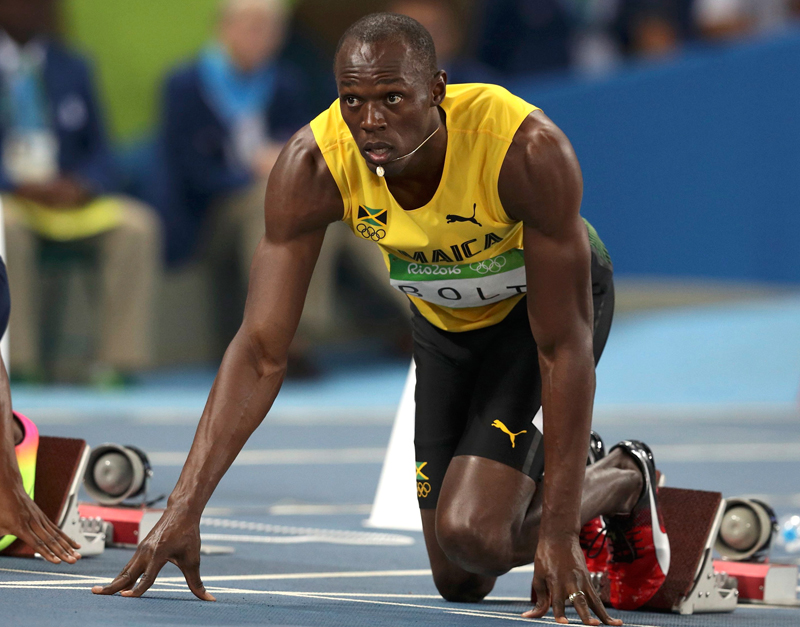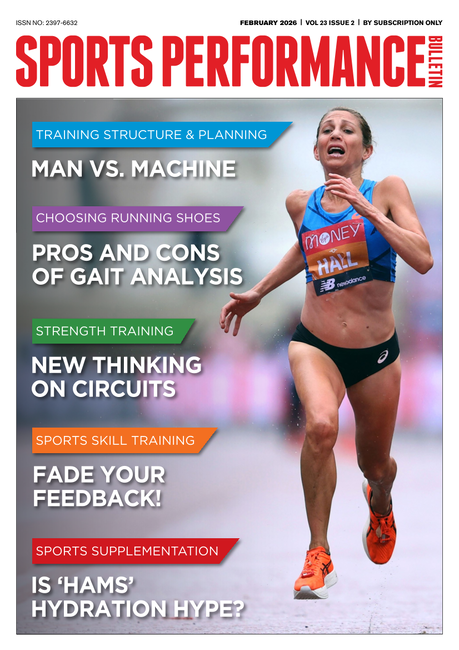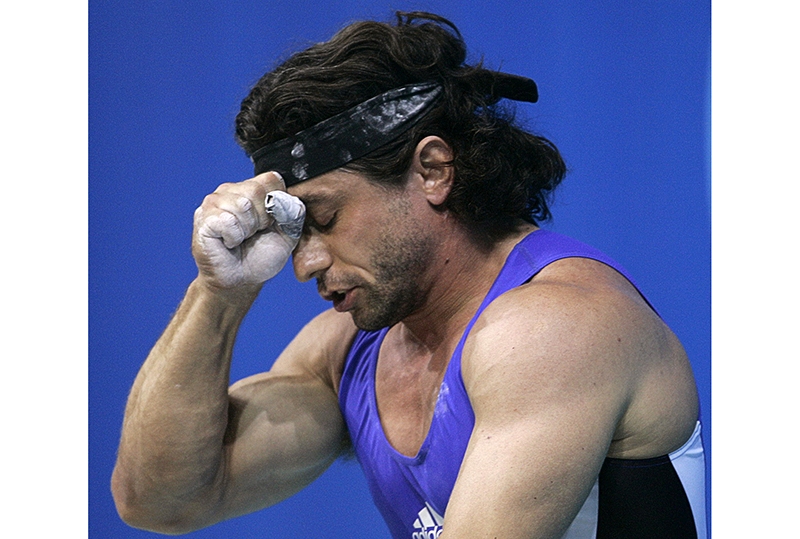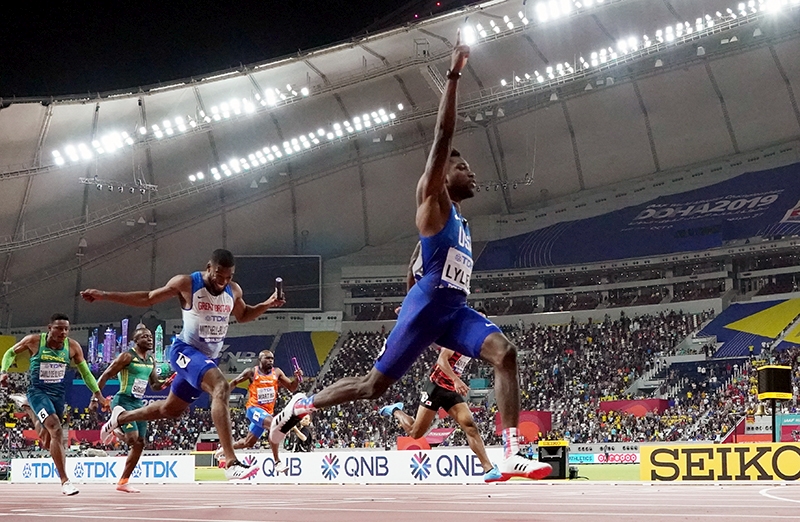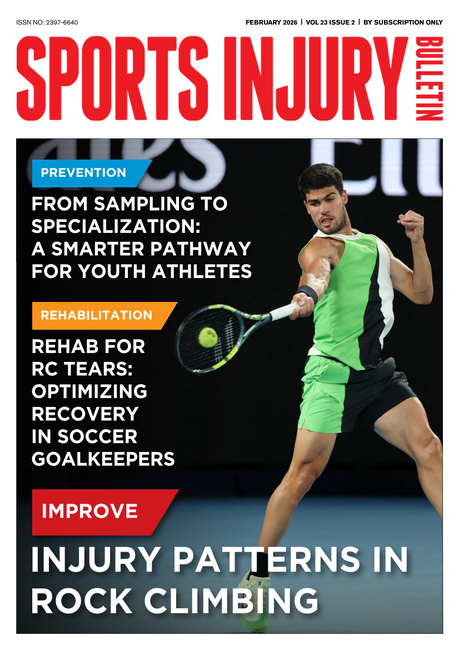You are viewing 1 of your 1 free articles. For unlimited access take a risk-free trial
Performance psychology: the power of an uncluttered mind
Can prior mental fatigue affect high-intensity exercise performance? Andrew Sheaff looks at some fascinating new research and spells out the practical implications
Even the most dedicated athlete cannot live in a vacuum, and for most athletes, it’s not even a remote possibility! Between school, professional, family, and social obligations, there are a lot of competing demands on athletes of all types, ages, and experience levels. While all of these competing demands might not be physical in nature, they can require a lot mental input. These demands require engagement, concentration, focus, and they require effort - just as physical training and sport practice do.
Cost of mental fatigue
Just because there isn’t any physical exertion involved, it doesn’t mean there isn’t a performance cost involved to these mental activities. Unfortunately, it’s become evident that mental fatigue can have a negative impact on sports performance, even if no physical load is experienced. As examples, the impact of performing mentally fatiguing tasks prior to activity have been demonstrated during sports skill practice(1) and during endurance exercise(2).
However, there is less agreement among scientists about what happens during short-term, more intense activities such as resistance training. For some athletes, these types of activities can comprise a significant portion of the total training load. If resistance training is compromised by mental fatigue as well, it’s important to understand the extent to which this the case so that individuals can adjust their training as appropriate. While intuitively, it makes sense that higher intensity training would be negatively impacted by fatigue in a similar manner to skill or endurance training, concrete evidence is always valuable.
New research on mental fatigue and physical performance
To determine the impact of mental fatigue on physical performance, a group of Spanish and Australian researchers have conducted new research on this topic(3). In this study, the researchers performed a meta-analysis (a study that pools the data from all the previous studies on a topic) to determine whether performing resistance training while mentally fatigued would result in the completion of fewer repetitions compared to performing the same resistance training without mental fatigue. The researchers also investigated whether, if there was a link, it affected both lower body and upper body resistance training exercises equally. This meta-analysis combined the results of seven different studies, which resulted in the inclusion of 190 subjects for the upper body analysis and 124 subjects for the lower body analysis.
When the data were number crunched and analyzed, the results were very clear: the inclusion of mentally fatiguing activities prior to intense resistance exercise significantly reduced the number of repetitions subjects were able to achieve during a set. Indeed, the presence of mental fatigue, even in the absence of physical fatigue, negatively impacted performance. In short, if you want to optimize your resistance exercise performance, avoiding mentally fatiguing activities beforehand seems like the smart move!
Implications for athletes
Clearly, mental fatigue can impact performance during high-intensity resistance training. Subjects experiencing mental fatigue were able to complete fewer repetitions than subjects that had not experienced mental fatigue, and this occurred during both upper body and lower body strength exercises.
While the subjects in these studies performed specific demanding cognitive tasks prior to strength training, it’s reasonable to assume that any task requiring sustained cognitive effort will have a similar effect. This could include studying for exams, performing creative work for a job, sustained effort on a work project, or intense focus during important meetings. Of course, these situations don’t just happen during as a result of professional or academic activity. They can and often do happen during one’s personal life as well. The important point however is that in many ways, these mental demands are often unavoidable. The upshot therefore is that training loads must be managed to account for this reality.
Practical advice
While the impact of mental fatigue on performance during resistance training is clearly evident, it’s less obvious what athletes should do about it. However, we can make some recommendations based upon the same principles that govern the management of physical fatigue. The best option is to reduce or eliminate any source of unnecessary mental fatigue, as appropriate. While quitting school, a job, or one’s family isn’t a reasonable option(!), removing any source of avoidable mental fatigue would be very sensible.
The next step would be to plan your intense training sessions for times when you’re experiencing low levels of mental fatigue. For instance, if Monday is a day that consistently requires high levels of focus and engagement outside of sport, planning an intense training session on Monday evening or Tuesday morning makes little sense. In this case, perhaps a Tuesday evening or Wednesday morning session would work better once enough time has elapsed to allow for recovery. Look at your schedule and identify the best opportunities for good training to occur.
Lastly, life is unpredictable and mental fatigue may creep up on days where intense training sessions are scheduled. In this case, two options are available. The first strategy is to complete the session as planned, with modified expectations. If the mind is fatigued, you may not be able to perform optimally - but rather than letting this create frustration, you can simply do what’s possible, while understanding it may not be the best training session. The second strategy is to take the day off or perform a lighter session, moving the more intense session back a day. This provides the best opportunity to perform when optimally ready.
Although not specifically reviewed, the results of this study likely extend beyond resistance training to include any type of high-intensity exercise. Therefore, although speculative, similar outcomes of mental fatigue-induced performance losses could be expected with sprinting, intense interval training, or any other intense mode of training. The commonality between all of these activities is that they require high levels of focus and exertion, both of which are likely compromised by mental fatigue. As such, the same strategies described above will likely be useful for those engaging in these activities, whether they experience mental fatigue in an on-going basis or intermittently.
In summary
The bottom line is that mental fatigue compromises our ability to perform as does physical fatigue. Failure to appreciate this reality could leave you consistently underperforming in training, which will lead to competitive underperformance over time. Athletes should therefore strive to reduce and recover from mental fatigue, and when possible, plan their training schedule to account for the mental fatigue they experience in everyday life, and adjust their training schedule when mental fatigue presents itself unexpectedly. Doing so will lead to better training sessions and better performance over time.
References
- Sci Med Footb. 2021 May;5(2):150-157
- Exp Physiol. 2021 Dec;106(12):2294-2298
- Motor Control. 2022 Dec 12;1-20. doi: 10.1123/mc.2022-0051. Online ahead of print
Newsletter Sign Up
Testimonials
Dr. Alexandra Fandetti-Robin, Back & Body Chiropractic
Elspeth Cowell MSCh DpodM SRCh HCPC reg
William Hunter, Nuffield Health
Newsletter Sign Up
Coaches Testimonials
Dr. Alexandra Fandetti-Robin, Back & Body Chiropractic
Elspeth Cowell MSCh DpodM SRCh HCPC reg
William Hunter, Nuffield Health
Keep up with latest sports science research and apply it to maximize performance
Today you have the chance to join a group of athletes, and sports coaches/trainers who all have something special in common...
They use the latest research to improve performance for themselves and their clients - both athletes and sports teams - with help from global specialists in the fields of sports science, sports medicine and sports psychology.
They do this by reading Sports Performance Bulletin, an easy-to-digest but serious-minded journal dedicated to high performance sports. SPB offers a wealth of information and insight into the latest research, in an easily-accessible and understood format, along with a wealth of practical recommendations.
*includes 3 coaching manuals
Get Inspired
All the latest techniques and approaches
Sports Performance Bulletin helps dedicated endurance athletes improve their performance. Sense-checking the latest sports science research, and sourcing evidence and case studies to support findings, Sports Performance Bulletin turns proven insights into easily digestible practical advice. Supporting athletes, coaches and professionals who wish to ensure their guidance and programmes are kept right up to date and based on credible science.

